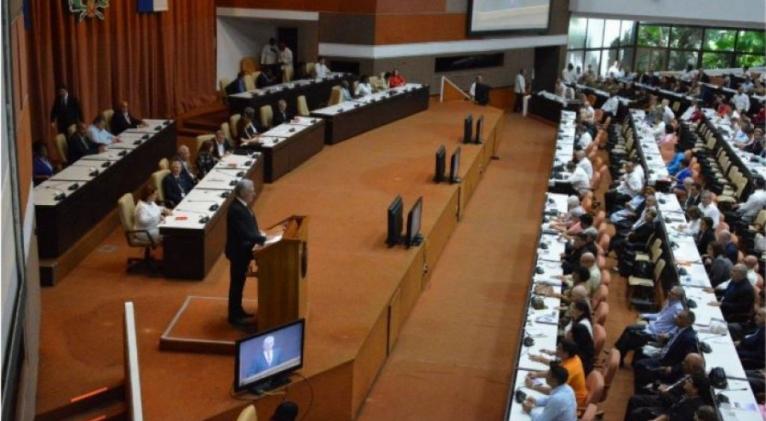Is the Cuban President handpicked?

The Cuban President is appointed by the Parliament; but Cuba is not the only nation where it happens.
It was foreseeable the special attention paid in this regard within the country and abroad. It was a historical event, no doubt, what occurred in Cuba that October 10th when amid an extraordinary session, the National Assembly of the People’s Power appointed its President and Vice-President of the Republic, as well as the Council of State among its many members. From then on, the Council of State leadership coincides with that of the National Assembly.
Some international mass media have criticized and raised doubts about the process. Some point out, for instance, that Diaz-Canel’s “designation” as Cuba’s president was handpicked. The media cry this is a sin within Cuba’s electoral system.
Actually, the Cuban president is appointed by the Parliament. But Cuba is not the only nation where it happens. In fact, the list of nations where second-order or indirect elections are carried out to appoint their main leaders is not short.
For example, the Prime Minister in Spain emanates from the Congress of Deputies, where he or she is appointed. The UK Prime Minister is also appointed by members of the Parliament and must depend on the symbolic approval of the Queen. In Japan, according to the Constitution, the Emperor nominates the Prime Minister, with the advice of the Assembly, but in practice, the Prime Minister is the leader of the ruling party in the Parliament. Neither the President nor the Chancellor is directly appointed in Germany. Both are nominated by the Parliament. Meanwhile in the U.S., contrary to what many people believe, being president depends mostly on an indirect appointment where the votes of the so-called political compromisers may replace the votes of millions, as it happened with George W. Bush in 2000 and more recently, with Donald Trump.
Abhorrers of the Cuban Revolution and others, who just criticize without analyzing the phenomena, demonize the Cuban way. Even though it may not be the perfect system, we should explain it is certainly not the worse and it does have several democratic features.
The appointment in October 10th, at the Havana´s Convention Palace, relied on guarantees and adhered to the legal mandate of the Constitution approved last April and the Electoral Law approved in July. Diaz-Canel, who resumes the post of President of the Republic —formally derogated in 1976— meets all the necessary eligibility requirements.
Summing up, Diaz-Canel was chosen by absolute majority, calculated from the 599 members of the Cuban Parliament. He got 579 votes of the 580 members of Parliament present after a free, equal, direct, and secret balloting.
A second-order election is not a de facto lack of democracy. In the case of Cuba, we feed from different sources of constitutionalism and take into account the practical experiences and adhere to the past and present determinants of the Revolution.
Cuba’s electoral system, authenticated by the people’s broad approval of the new Constitution, beyond legal standards, gets backing in historical reasons that led to the own conception in the organization of the State: the people’s power.
And that was implemented in the election held on October 10th. There will be always negative opinions. But the members of the Cuban Parliament —who represent the people and this fact cannot be ignored— directly appointed the president and the majority of the population (workers, farmers, youth, university and high-school students, and women) were represented by the leaders of their respective organizations during the configuration of the list of candidates.
Neither cannot be ignored that Diaz-Canel and the rest of appointees in their status of members of the Parliament had already been nominated in March 2018. And this new Constitution provides for the completion of their parliamentary term.
Hence, as some of the big media corporation are suggesting:
-Was the Cuban President handpicked?
-No. Our President was appointed by the people.
Translated by Sergio A. Paneque Diaz/CubaSi Translation Staff













Add new comment